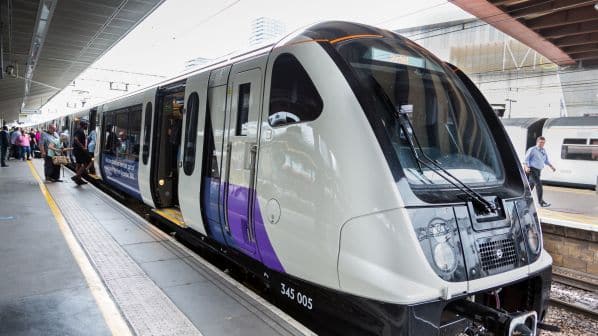MTR UK has launched a joint venture with consultancy and software provider Trenolab which aims to “revolutionise Britain’s rail timetabling” by providing simulation technology that can model train operations in detail and help produce a robust and reliable service.
The services being offered to all parties in the industry by MTR Trenolab include infrastructure and service planning, timetable robustness modelling, and contingency and service recovery modelling, helping to ensure that services return to normal as soon as possible when disruption occurs.
The new joint venture aims to combine Trenolab’s technical expertise with MTR UK’s experience of the British rail industry, and its familiarity with developing timetables to meet a complex array of sometimes differing stakeholder requirements.
It builds on the relationship formed by the partners as MTR UK has commissioned Trenolab to model timetables for the phased opening of the Elizabeth Line, helping to identify performance risks and address them before the timetable is put into effect.
As a result, says MTR UK, the average punctuality of Elizabeth Line services in summer 2022 was 94.4%, compared with an average of 87.6% for all operators in London and southeast England.
“All timetables should be modelled,” says Mr Mike Bagshaw, managing director of MTR Elizabeth Line which operates the service under a concession awarded by Transport for London (TfL).
“They shouldn’t be launched on the public unless they have been tested and made to work.”
Trenolab was founded in 2015 as a spin-off of the University of Trieste in Italy by Dr Giorgio Medeossi, who is technical director of the consultancy.
The company has developed three software tools, including Trenoanalysis, which is built on real operating data for infrastructure and rolling stock from a wide variety of sources. This includes on-train monitoring recorders (OTMR), enabling individual driver behaviour to be built into timetable modelling.
The Trenoplus timetable planning tool has been developed from scratch, based on a scalable database management system supporting any number of trains. Timetable simulation is undertaken using Trenissimo software.
“We can do it very fast and across a large area,” says Medeossi, who reports that simulation of the timetable for a whole day on the Norwegian network managed by Bane Nor has been undertaken in five minutes.
Other clients in Europe have included French National Railways (SNCF), Italian infrastructure manager RFI, Netherlands Railways (NS) and Dutch infrastructure manager ProRail.
Improved processes and new tools have significantly reduced the time taken to undertake timetable situations, Medeossi says. In 2015 it took 14 hours to simulate timetables for a 30-day period, while it is now possible to complete in 1h 30min a simulation for 250 days - roughly equivalent to the number of weekdays in a year.
Reflecting on the use of Trenolab tools to plan timetables for the phased opening of the Elizabeth Line in five stages, Bagshaw says “generally, it has been successful. We have ironed out all the things that don’t work.”
Other Trenolab clients in Britain include infrastructure manager Network Rail, HS2, South Western Railway (SWR) and Great Western Railway (GWR).
GWR commissioned modelling of its new timetable introduced in December 2019. With the introduction of electric rolling stock, this saw the biggest change to service patterns since 1976.
Medeossi reports that by the second day of the new timetable, punctuality was nearly 100%, “demonstrating that the timetable was good and delivered the expected performance.”
“Our new joint venture with MTR UK will enable rail operators to elevate their service to customers by helping them create high-performing timetables and delivering efficient train services that run on time,” Medeossi says.
“MTR’s involvement adds a deeper, practical knowledge of the rail industry to the technical excellence of Trenolab,” says MTR UK Commercial Director, Mr Graham Cross.
“Together we can help clients drive significant improvements in punctuality and reliability across their operations, to benefit their passengers and freight customers.”

